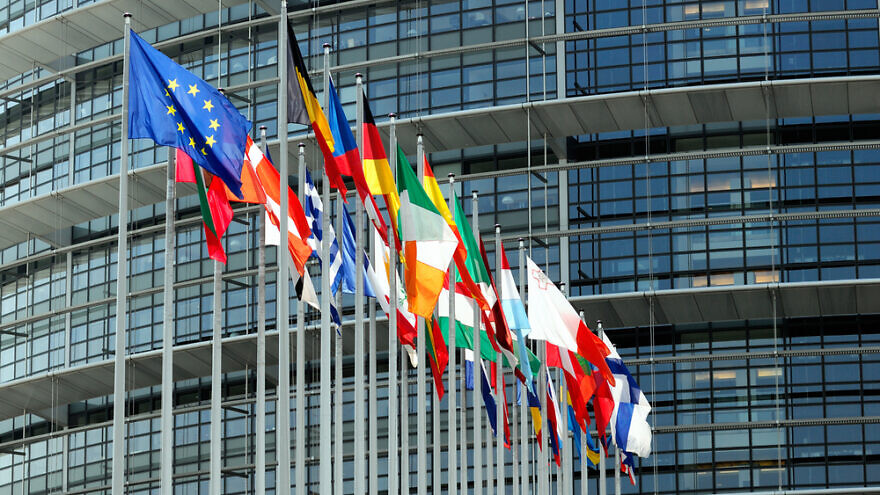Acknowledging that most European Jews do not feel safe in their home countries, the European Commission released a report on Tuesday outlining strategies to combat anti-Semitism and encourage the growth of Jewish life there.
At stake, say the commissioners, is not just a thriving Jewish community in the European Union but a thriving diverse society in the E.U.
Estimating that 1.5 million Jews reside in the European Union—the largest population lives in France with roughly 445,000 Jewish residents, while some countries count just a few hundred Jews—the report states that the population is declining in part due to security concerns, the politicization of Jewish customs and a perceived lack of movement by governments to address anti-Semitism.
To that end, their strategy relies on three elements:
- Preventing and combating all forms of anti-Semitism, including online.
- Protecting and fostering Jewish life in the E.U.
- Fostering education, research and Holocaust remembrance.
For each area, the commission makes certain pledges of what it will do and suggestions as to what member states “are encouraged” to do.
Among the commission’s pledges are to better protect houses of worship and public spaces; to help member states design and implement plans to combat Jew-hatred and increase fact-checkers to combat hate online; to strengthen training given to law enforcement and justices on tackling anti-Semitism; to support a network of places where the Holocaust happened; and to establish a Young European Ambassadors group to promote Holocaust remembrance.
The commission also pledged to raise awareness of Jewish culture and traditions, including shechita, the laws of ritual kosher slaughter. This is an issue that has come to the fore in recent days as a European court upheld a ban on shechita, which would make it illegal for Jewish communities in parts of Europe to slaughter meat for eating.
In fact, the commissioners addressed the issue brief, saying that “member states may adopt different rules based on the domestic context” while ensuring people’s right to free expression “by striking a fair balance between respect for the freedom to manifest religious [practices] and the protection of animal welfare.”
Jewish groups responded favorably to the report, noting that it addressed many areas of concern.
“It is reassuring to see that the strategy aims at tackling anti-Semitism whether it originates from the far-right, the far-left, Islamists or mainstream society, and clearly identifies ‘Israel-related anti-Semitism’ as a major problem,” said Daniel Schwammenthal, director of the AJC Transatlantic Institute, the American Jewish Committee’s European Union office. “As the commission notes, it is, in fact, ‘the most common form of anti-Semitism encountered online by Jews in Europe today.’ ”
“This is an unprecedented and vital document that will act as a roadmap to significantly reduce anti-Semitism in Europe and beyond,” said Moshe Kantor, president of the European Jewish Congress. “It is a commitment to the Jews of Europe that we belong and are a vital part of the European future, and the continent’s decision-makers will be making a supreme effort to ensure Jewish life flourishes.”


























